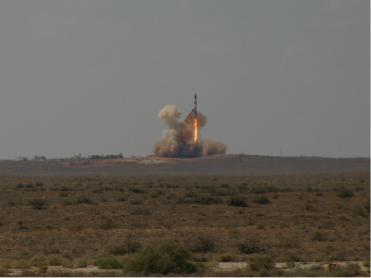
MOSCOW (BNS): NASA has awarded a grant to develop technology for sterilising planetary Landers in future NASA missions to Mars, to the University of Idaho, Russia.
It has been found that sterilisation techniques on planetary landers currently in use are not effective for killing certain microbial germs that have been observed in spacecraft assembly facilities and on spacecraft surfaces, such as the Mars Exploration Rovers and the Mars Phoenix Lander. It is important that new technologies are developed to kill highly resistant germs without damaging the components of the spacecraft.
The University of Idaho has received a three-year $630,765 grant from NASA's Experimental Programme to Stimulate Competitive Research (EPSCoR). On its part, the University will also match NASA’s grant for a sum nearly $1.3million. The grant has been awarded to develop technology for sterilising planetary Landers in future NASA missions to Mars.
It has been found that sterilisation techniques currently in use are not effective for killing certain microbial germs that have been observed in spacecraft assembly facilities and on spacecraft surfaces, such as the Mars Exploration Rovers and the Mars Phoenix Lander. It is important that new technologies are developed to kill highly resistant germs without damaging the components of the spacecraft.
The research team will be led by distinguished professor of microbiology Ronald Crawford, director of University's Environmental Biotechnology Institute, while the science team will be handled by Andrzej Paszczynski, associate professor of microbiology, molecular biology and biochemistry, and Chien Wai, professor of chemistry.
Enlightening about the project, Jean Teasdale, director of the NASA Idaho Space Grant Consortium and NASA Idaho EPSCoR Programme said, "As we continue to explore the Solar System, it is imperative that the environment is not contaminated by life accidentally carried by the spacecraft.” The director said that Dr. Crawford and his team will make significant contribution to NASA and to its future space exploration.
Kasthuri Venkateswaran of NASA's Jet Propulsion Laboratory (JPL) will collaborate with the University of Idaho research team and will serve as the primary liaison between JPL and the university.
The University of Idaho research team is expected to develop supercritical carbon dioxide (SCCD) technology that will treat Earth-derived biological contaminants on spacecraft components without damaging its structure or function. The project will study specifically on avoiding contamination in future missions to Mars, where scientific objectives include the possible detection of extant or past life on the planet's surface.
According to Crawford this EPSCoR project continues the Varsity’s long-term and highly successful collaboration with JPL, in unraveling the presence of life in the Universe. "Our contributions to spacecraft sterilisation techniques should make this search easier and less expensive," he said.
The scientists have opined that the advantage of SCCD is that it can penetrate bacterial cells and spores, killing them from the inside out, while sparing sensitive spacecraft components from exposure to harsh conditions.
Describing the project, Teasdale said that NASA EPSCoR project provides an opportunity for researchers to perform cutting-edge research that addresses key elements of NASA's exploration programmes. "As questions related to the development of life in extreme environments and the field of astrobiology gain prominence, sterilisation of the spacecraft that carry life-detection experiments to the surface of other worlds will become an essential technology for NASA to master," Teasdale added.
 Previous Article
Previous Article Next Article
Next Article













The Indian Air Force, in its flight trials evaluation report submitted before the Defence Ministry l..
view articleAn insight into the Medium Multi-Role Combat Aircraft competition...
view articleSky enthusiasts can now spot the International Space Station (ISS) commanded by Indian-American astr..
view article